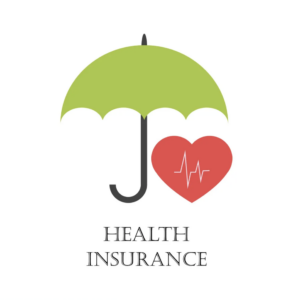After Work Rehab Programs
Many people struggle with substance abuse but find traditional inpatient rehab programs impractical. However, spending months at a treatment facility isn’t the only way a person can tackle addiction. Instead of putting your life on hold for months, you can attend IOP sessions in the evening and complete a rehab program after work.
Recovery at the Crossroads prides itself on being one of the only New Jersey rehab centers that offers IOP rehab after work. Read on to learn more about our treatment program and how we can help you overcome addiction.
For information about our rehab after work – Contact us today
What is “After Work” IOP Drug and Alcohol Treatment?
IOP is an acronym for intensive outpatient program, a type of addiction treatment where you continue to live in your own home. Rather than living full-time at a New Jersey treatment center, you attend a certain number of sessions and hours each week. An addiction treatment program is crucial as it ensures individuals receive the necessary support while being protected under the American Disabilities Act (ADA), which prohibits discriminatory practices related to their participation in recovery.
An outpatient treatment program will usually capitalize on this flexibility by offering morning or evening courses. Our IOP treatment programs include sessions in the evening so people can attend rehab after work. While different people may find one program or another is more suitable for them, IOP is an invaluable option for overcoming drug addiction. Compared to the alternatives, it has key advantages that will make it the first choice of many. Partial Hospitalization Programs (PHP) are also available and are designed to provide structured, therapeutic support for individuals dealing with co-occurring substance use and mental health conditions, addressing these intertwined challenges effectively.
Types of Rehab After Work Programs
Rehab After Work programs cater to individuals with varying needs and circumstances. The types of programs offered include:
- Intensive Outpatient Programs (IOP): These programs provide a high level of structure and support, with frequent sessions and a comprehensive treatment plan. IOPs are designed to help individuals manage their substance use disorders while maintaining their daily responsibilities. With a focus on evidence-based therapies and mental health services, IOPs offer a balanced approach to recovery.
- Partial Hospitalization Programs (PHP): For those needing a more intensive level of care, PHPs offer a focus on stabilization and crisis management. These programs provide a structured environment with medical supervision, making them ideal for individuals who require more support than an outpatient program can offer but do not need 24-hour inpatient care.
- Outpatient Programs: These programs provide a more flexible level of care, focusing on ongoing support and maintenance. Outpatient programs are suitable for individuals who have completed more intensive treatment and are looking for continued support as they transition back into their daily lives. These programs help reinforce coping skills and provide a network of support to prevent relapse.

Start Your Journey to Recovery
Recovery at the Crossroads is a highly regarded facility when it comes to treating all types of substance use. Our care combines compassion and a sincere desire to help with evidence-based, scientific treatments for addiction. If you’re struggling with problematic drug use, we can help you recover with a plan that matches your schedule.
Transform Your Life with Our Rehab After Work IOP Program
If you’re ready to start rehab after work to beat your substance abuse issues, we’re ready to help. Group therapy and individual therapy play a crucial role in our IOP program, providing a structured environment where individuals can share experiences and develop coping strategies. Our evening group sessions take place on a regular schedule of Monday, Tuesday and Thursday from 6 to 9 p.m. Attendance is completely confidential, and you can get help at the level of privacy that’s most comfortable for you.
If you commit nine hours a week to our treatment plan, we’ll help you improve your mental health and break your dependency on alcohol and drugs.
What Makes Our Addiction Treatment Center in New Jersey Different?
While there’s a stereotype that inpatient drug rehab is the end-all of addiction treatment, this isn’t quite true. Some people will indeed need to attend detox and months of treatment to get clean, but these severe addiction cases are relatively uncommon. Studies show that for most patients, an IOP recovery program is just as effective as inpatient treatment and is a highly effective form of substance use disorder treatment. Meanwhile, it has a lower cost than inpatient rehab and doesn’t require any loss of income on your part.
You also have to take into account the unique benefits of IOP. The heightened level of flexibility makes it possible to integrate IOP care into your day-to-day life while continuing to work. Whereas it can be quite stressful to leave an inpatient program and return to independent living, IOP enables a much more seamless transition. Furthermore, there’s no set date for it to end and you can complete the program sooner or later based on individual progress. You also have the option of moving into general outpatient care first if you’d prefer a staggered transition.
IOP vs General Outpatient Programs
While general outpatient has slightly greater flexibility than IOP, this can be too much of a good thing. The greater commitment and higher treatment level of IOP are important in the early stages of drug rehab. This difference in intensity is what gives each of these treatment types their utility, with general outpatient care being more useful as a type of post-treatment aftercare. Intensive outpatient care is more suitable as an overall, primary care choice, as it focuses on the individual’s treatment by addressing unique challenges and involving family members to enhance recovery outcomes.

How Intensive Outpatient Treatment Can Aid Recovery
Intensive outpatient programs rely on frequent sessions to help members work on their mental health and overcome alcohol and drug problems. Distress tolerance is a crucial skill taught in these programs, helping clients manage emotions and improve interpersonal effectiveness. These support groups take place with respect to each patient’s privacy and are entirely safe, confidential opportunities to seek help and emotional support. We combine various types of care to help patients learn coping skills, identify co-occurring disorders and gain control of their lives.
.
Our Substance Abuse Treatment Services in New Jersey
There are numerous modalities we rely on in the course of treating a person’s substance use disorder. While past methods of treating addiction focused on shame and abstinence, modern methods take a more compassionate approach and stem from deeper understanding. High focus centers in Center City Philadelphia offer comprehensive care through various outpatient programs for adults struggling with behavioral health issues, including general outpatient, intensive outpatient, and specific support for addiction and trauma.
Addiction is rarely about the drugs in question and tends to have more to do with an underlying problem. When someone spirals into addiction, it’s typically because they’re using a substance to self-medicate or avoid this problem. The services offered include a range of counseling options and additional recovery support services aimed at aiding patients in their recovery journey. Some of the methods that different practices emphasize to deal with addiction include:
The Importance of Therapy for Substance Abuse Treatment
Studies show there’s a deep link between mental health issues and substance use disorder. In particular, trauma and addiction have an incredibly close link. The majority of people with an addiction have suffered severe trauma, either recently or in their childhood. Sometimes mental health issues and addiction are so closely intertwined that the care provided should reflect this dual diagnosis.
Dual diagnosis is the term for someone having a mental health disorder as well as a substance use issue. While mental illness is a common risk factor for addiction, some conditions in particular such as depression, anxiety and obsessive-compulsive disorder, are particularly common among those with a drug addiction. In each case, drug abuse either stems from a lack of treatment for the underlying condition or is an attempt to treat the condition itself.
This connection is why it’s so important to focus on therapy and underlying conditions during addiction treatment. Interpersonal effectiveness, a crucial skill taught in Dialectical Behavior Therapy (DBT), is essential for improving emotional regulation and relationships. Shame-oriented treatment and a simple focus on abstinence set people up to relapse by failing to help them. By helping people untangle and overcome the underlying conditions in their lives, it becomes possible to help them achieve an enduring recovery.
Dual Diagnosis and Co-Occurring Disorders
Addressing both substance use disorders and mental health conditions simultaneously is crucial for effective treatment. Dual diagnosis treatment is designed to manage co-occurring disorders, ensuring that both issues are treated concurrently. This integrated approach helps individuals understand the connection between their mental health and substance use, providing a more comprehensive path to recovery.
By focusing on both aspects, dual diagnosis treatment helps in reducing the risk of relapse and promotes long-term recovery. Integrated treatment plans that include evidence-based therapies, such as cognitive behavioral therapy and dialectical behavior therapy, are essential in addressing the unique challenges faced by individuals with co-occurring disorders. This holistic approach ensures that all aspects of an individual’s health are considered, leading to more effective and lasting recovery outcomes.
Paying for Rehab After Work
Many people aren’t aware that today, the law requires insurance companies to cover behavioral and mental health treatment. Philadelphia PA offers accessible and convenient services for those seeking rehab options. As a result, it’s likely you can use your insurance to pay to attend rehab after work. Since IOP care is more affordable than inpatient treatment, your insurance is likely to go further as well. Get in touch with our New Jersey rehab center team to find out more details about paying for drug rehab with insurance.
Aftercare and Support
Aftercare and support are critical components of the recovery process. Rehab After Work programs offer a range of aftercare and support services to help individuals maintain their sobriety and prevent relapse. These services include:
- Support Groups: These groups provide a safe space for individuals to share their experiences and connect with others who are going through similar challenges. Support groups offer emotional support and a sense of community, which are vital for long-term recovery.
- Individual Counseling: Ongoing support and guidance through individual counseling help address any underlying issues and maintain sobriety. This personalized approach ensures that each individual’s treatment plan is tailored to their specific needs, promoting a more effective recovery journey.
- Family Therapy: Rebuilding relationships and promoting healing within the family unit are essential for recovery. Family therapy provides support and guidance for family members, helping them understand the recovery process and their role in it. This collaborative approach strengthens the support system around the individual, enhancing their chances of long-term success.
- Relapse Prevention: Ongoing support and guidance focused on preventing relapse are crucial for maintaining sobriety. Relapse prevention services help individuals identify triggers, develop coping skills, and create strategies to manage stress and avoid relapse. This proactive approach ensures that individuals are well-prepared to handle challenges and maintain their recovery.
By offering these comprehensive aftercare and support services, Rehab After Work programs provide individuals with the tools and resources they need to achieve and maintain long-term recovery.
Call Our New Jersey Drug Rehab Center
Recovery at the Crossroads is one of the top rehabilitation facilities in New Jersey for both alcohol and drug addiction treatments. Whether you need alcoholism rehab or struggle with drug abuse, we’re ready to help you complete treatment and recovery. Take the first step today. Call our admission hotline at 888-342-3881 to join our evening therapy sessions and become part of a recovery-minded community.
